The first time I got pregnant, I was living in Pakistan. This time I’m living in Botswana. The difference with baby #2 is that we’re not hightailing it back to America to have our child. We’re packing up the car with our toddler, our nanny and our dog, and driving 18 hours across the border to Cape Town in South Africa to have our son there instead (sadly, the pet tortoise doesn’t get to come). We’ll get there with a month to spare in case the little man decides to come early.
Some Americans might say that the United States has the best healthcare in the world and that they would only feel comfortable going back home for such an event. I am not one of those people. However, I’m also not intrepid (or optimistic) enough to deliver in Botswana as I do require a NICU facility and a reliable blood transfusion supply. Happily South Africa has these things, so I am good to go. Cape Town itself made medical history for being the location of the first successful heart transplant in the world in 1967. Even though this is totally irrelevant I find it reassuring for some reason.
I also like the vibe in South Africa. Unlike in the U.S., in South Africa doctors work closely with midwives in the hospital. You don’t find sharply drawn battle lines forcing you to choose between which kind of care you want. And doesn’t it make the most sense to get the best of both worlds? Apparently Europe follows the same model: midwives manage the birth unless or until medical intervention is required, and then the doctor has only to briskly walk down the hall to get right on it.
When I was in Cape Town on a business trip in June I took two detours to get my birth plan in place. First up was visiting the midwives’ birthing practice. The office was an old, airy two-story house with creaky wood floors, pamphlets on doulas, and packets of herbal tea in the hallway just as you would expect.
I told one of the midwives Lila’s whole birth story from three years ago to give her my history, and she blanched visibly a few times as I kept pouring on more details: seizure, ambulance, pneumothorax, NICU, hemorrhage, aphasia, blood transfusion. She said they would love to work with me but I would need to clear it with one of the doctors that backs them up first, to make sure everyone was comfortable with me going the midwife route.
So in the middle of the trade show craziness I was in Cape Town to attend, I ducked out of the convention center at lunch and followed the rental car GPS out to the hospital where the doctor’s office was, feeling like I was headed for a job interview or first meeting with the in-laws. Would the doctor like my case? Would she accept me? Would she think I am too high-risk to deliver without constant medical supervision, dashing my hopes to have a crunchy band of midwives and their birthing pool help bring my next baby into the world?
I thought I was fifteen minutes late to the appointment, but I was actually forty-five minutes early. Either my brain still doesn’t properly hear time when given in the “half past” and “quarter past” varieties like they do here or the receptionist had a mumbling problem. Either way it made me uncharacteristically prompt. Even after filling out copious forms I had a solid block of time to kill and was feeling hungry so I wandered through the rabbit warren of passageways at the hospital to find the coffee shop. I ignored the plate of chocolate cupcakes to find the healthiest pregnancy snack available, settling on a bag of popcorn and a bottle of still water. I struggled with the bag on the way back to the doctor’s office, pulling at the plastic seams with all my might until pop! the bag exploded all over a blue carpeted staircase like a burst of confetti.
I turned around guiltily to face the staff at the entrance desk who saw the whole thing, but they waved me away so I stepped over the shower of popcorn and moved on, clutching the ripped bag to my chest while errant pieces continued to pop off and scatter all the way up the stairs. I had no choice but to eat quickly, burying my face like a horse in a feed bag. At one point I got lost in the maze of corridors, turned around, found a damning white kernel on the carpet from my last turn, and followed the trail like Hansel and Gretel.
The doctor’s office was cool and crisp, with fresh orchids on the reception desk and soft prints of innocuous still lifes in watercolor on the walls. The doctor herself was a tall, well-groomed German woman who made the white coat look good. She took a glance at my file, looked at me over her Euro glasses and said “Why don’t you jeez tell me your whole storee.” She had already noted with approval the last name of my husband. “Schneeeider. Theeese sounds veery German.” I was grateful for the in.
At the end of the day, after lots of back story, a few steely laughs, and some hard-nosed questions, she was ready to go. She told me yes, my situation is complicated, but there is no reason to think this birth won’t be completely uneventful and different from my first, and most importantly, I am in a hospital should anything go wrong. I will see her a few more times during the month before my due date, but as she reminded me when I left, if everything goes well, I won’t see her at the birth at all. I was almost sorry about that.
There are times living overseas when your inner homesick bell rings the loudest, when you wish you lived a few streets over from your family or even a few states over, like most Americans do. Holidays, birthdays, and especially when a loved one is ill or passes away–these are the times you want to be close. Having a baby falls into that category as well, but as that is impossible this time around I am making the best of it: finding a place that feels as much like home as it can, even far away from home.
The only other wrinkle to delivering overseas is that our son will run into difficulties if he ever wants to become President of the United States. I’m guessing this is a pretty unlikely scenario, and I bet that law is changed by the time he is 35 anyway so that he will have clear sailing to the White House. In that case our son can draw on his roots in Africa on the campaign trail as evidence of his cosmopolitan background and ability to bridge cultural divides. (On second thought, that line of persuasion didn’t work out so well for our current President when he was running for office so never mind.)
My last order of business at the hospital was to pop over to the maternity ward for a tour from a very cheerful maternity nurse named Candice. She was very impressed when I told her I was planning a natural birth and even more so when she found out I’ve already had one. “Natural” here does not mean drug-free (although my birth with Lila was that too); it only means not a c-section. The “Caesar” rate, as they call it, is 90% in some hospitals in South Africa, a huge number of which are scheduled and elective. Apparently South Africans are following the model of the Spice Girl who is “too posh to push.” I checked out the peaceful post-natal rooms and the well-equipped baby nursery and was given a sheet of paper listing visiting hours for grandparents which, sadly, is irrelevant for us: the only truly bad thing about having a baby overseas.

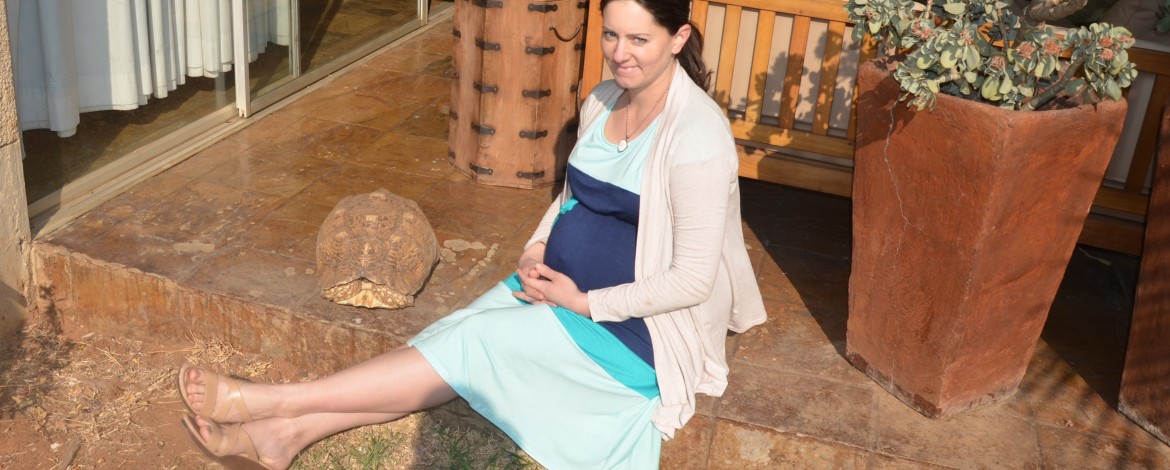


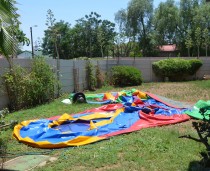
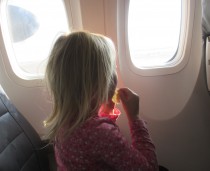
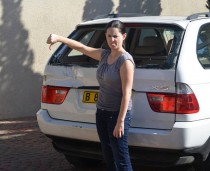
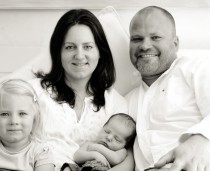
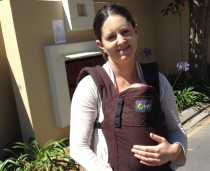

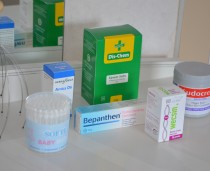

6 Comments